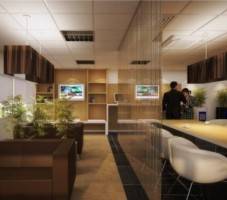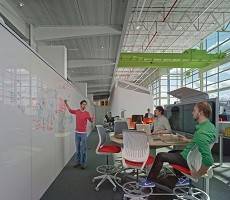October 28, 2014
New BREEAM environmental standard launched for UK office refurbishment and fit-outs
 The Building Research Establishment (BRE) has launched the latest addition to its flagship sustainability accreditation scheme. Launched fully at MIPIM UK, the Building Research Establishment Environmental Assessment Method (BREEAM) Refurbishment and Fit-Out 2014 standard has been in development for around two years, a period which has included consultations with some of the UK’s largest commercial property occupiers, end users as well as a full assessment of a pilot project at BRE’s base near Watford. It joins existing BREEAM standards as a way of assessing the sustainability of office refurbishment and fit-out projects in the UK and overseas. The standards were tested on a simulated refurbishment project at the BRE site and achieved, in the words of the organisation, “significant savings as well as many other positive learning outcomes”. Firms which took part in the two year development and consultation period included Lloyds, Boots, Legal & General and The Green Investment Bank.
The Building Research Establishment (BRE) has launched the latest addition to its flagship sustainability accreditation scheme. Launched fully at MIPIM UK, the Building Research Establishment Environmental Assessment Method (BREEAM) Refurbishment and Fit-Out 2014 standard has been in development for around two years, a period which has included consultations with some of the UK’s largest commercial property occupiers, end users as well as a full assessment of a pilot project at BRE’s base near Watford. It joins existing BREEAM standards as a way of assessing the sustainability of office refurbishment and fit-out projects in the UK and overseas. The standards were tested on a simulated refurbishment project at the BRE site and achieved, in the words of the organisation, “significant savings as well as many other positive learning outcomes”. Firms which took part in the two year development and consultation period included Lloyds, Boots, Legal & General and The Green Investment Bank.






















October 29, 2014
The business case for green building widens to cover wellness and productivity
by Alison Kitchingman • Comment, Environment, Facilities management, Workplace design
(more…)